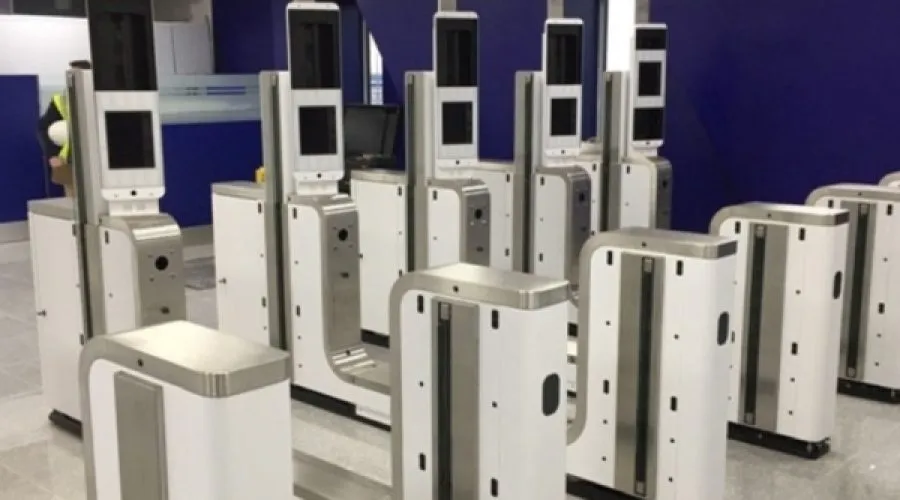Biometric and Digital ID Adoption in Air Travel: What It Means for Business Efficiency and Security in Oman
More air travelers are increasingly utilizing smartphones to manage every stage of their journey, driven by advancements in biometrics and digital identity technologies that enable seamless airport processing.
According to the International Air Transport Association’s (IATA) 2025 Global Passenger Survey (GPS), passengers in the Middle East prioritize airports known for excellent service and their preferred airlines. This region’s travelers are highly engaged with digital tools, including widespread use of digital wallets, and they display strong enthusiasm for smartphone-based travel credentials. The Middle East ranks third globally in overall passenger satisfaction, underscoring a continued focus on loyalty and high service quality.
Nick Careen, IATA’s Senior Vice President of Operations, Safety, and Security, highlighted the evolving passenger expectations: “Passengers want to manage their travel in the same way they manage many other aspects of their lives—on their smartphones and using digital ID. The feedback from this year’s GPS is clear: travelers enjoy these digital processes and want more. However, building trust through robust cybersecurity remains a priority. Cybersecurity must be integral to the end-to-end digital transformation of how we book, pay, and experience air travel.”
The GPS underscores the growing centrality of mobile devices in passenger journeys. Travelers are increasingly booking flights, managing payments, loyalty programs, and handling check-in, immigration, boarding, and baggage processes via smartphones. Enthusiasm for mobile-enabled travel has reached new heights.
Booking and payment patterns are shifting toward mobile channels. Over half of travelers (54%) prefer to engage directly with airlines, primarily through mobile apps. While airline websites remain the most popular booking channel at 31%, this is down from 37% in 2024. Conversely, web apps gained popularity, favored by 19% of travelers in 2025, up from 16% the previous year. Younger travelers (25%) are leading this trend, signaling continued growth in mobile booking preferences.
Regarding payments, credit and debit cards still dominate at 72%, though this represents a significant decline from 79% in 2024. Use of digital wallets has surged from 20% in 2024 to 28% in 2025, alongside growth in instant payment methods like IATA Pay, which rose from 6% to 8%.
Passengers increasingly want smartphones that integrate multiple functions: 78% desire a device combining digital wallets, digital passports, and loyalty cards to streamline bookings, payments, and airport navigation. The adoption of electronic bag tags is also rising, increasing from 28% in 2024 to 35% in 2025, allowing passengers to generate bag tags via mobile during check-in.
Biometric technology usage at airports is expanding, with passenger satisfaction reaching its highest levels yet. Half of passengers (50%) have used biometrics during their airport journey, up from 46% in 2024, especially at security (44%), exit immigration (41%), and entry immigration (35%). Usage has increased by nearly 20 percentage points since 2022.
Passengers report strong satisfaction with biometrics, with 85% expressing positive experiences. Additionally, 74% are willing to share biometric data to bypass showing passports or boarding passes at checkpoints such as check-in, security, border control, and boarding.
Privacy concerns remain, but there is potential to build trust: 42% of passengers currently reluctant to share biometric information said they would reconsider if assured of data privacy.
Careen emphasized the importance of government action: “Passengers already use biometrics across various journey stages. To achieve a fully digital international travel experience, governments must begin issuing digital passports and enable their secure recognition across borders. This will benefit travelers, governments, and airlines by making digital identity experiences more convenient, efficient, and secure.”
Special Analysis by Omanet | Navigate Oman’s Market
The rising adoption of biometric and digital identity technology in air travel presents a significant opportunity for Omani airports and airlines to enhance passenger experience and operational efficiency, catering to the region’s tech-savvy travelers who prioritize convenience and service quality. Smart investors and entrepreneurs should consider expanding digital payment solutions and biometric-enabled services while prioritizing cybersecurity and data privacy to build strong traveler trust and loyalty. This shift signals a future where air travel becomes seamlessly integrated with mobile technology, creating new avenues for innovation in Oman’s travel and tourism sector.



